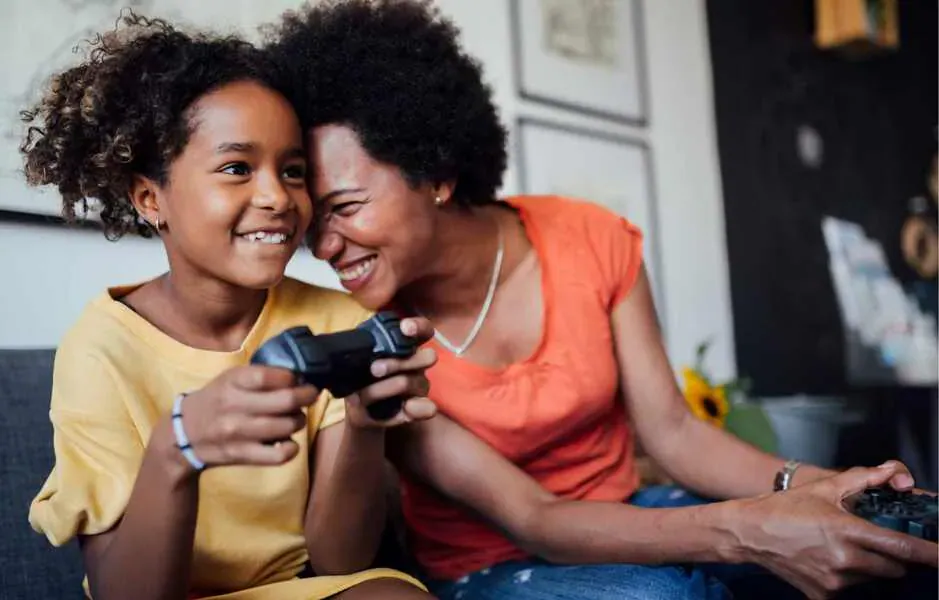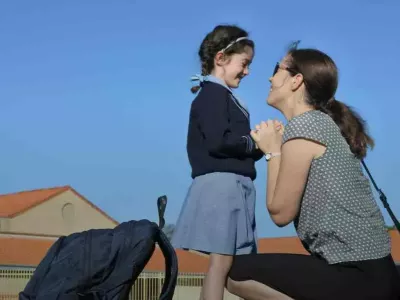Empowering Families For Safer School Holiday Screen Time: Tips From Triple P

The school holidays are here and making sure kids are engaging in safe screen time activities is front-of-mind for many families. Experts from the Triple P – Positive Parenting Program are supporting parents and carers with simple strategies to help provide kids with a safe environment in the weeks ahead.
With many parents and carers needing to work or manage end-of-year activities, Dr Alan Ralph, Triple P International Head of Training and Clinical Psychologist, said there will be an understandable increase in the time children spend on screens.
“Living in a digital age has lots of upsides for families and can be useful in situations where adults are busy or concentrating and need to give children something interesting and engaging to do. However, there are a range of concerns around cyberbullying, identity theft, online addiction, and sexual predation, that are important to address,” Dr Ralph said.
“A recent E-Safety Commissioner report revealed that half of the parents surveyed underestimated the prevalence of children’s negative online experiences and alarmingly, more than half of children admitted to communicating with strangers online, yet only one in three of their parents were aware,” he said.
“The good news is, parents and carers can take a proactive, positive approach to help make sure their children’s online world doesn’t end up impacting their health and wellbeing in the real world. This includes problems with sleep, behaviour, as well as their social and emotional development.”
With these helpful tips from Triple P, parents and carers can make the most of their time together these holidays while promoting a healthy relationship with technology:
- Level up your digital know-how. Try to stay informed about current digital trends and get to know the apps and games your child is into. Take some time to explore parental controls and read reviews, and even play games yourself to check if they’re appropriate for your child. Talk with them about important topics such as not sharing their personal details, privacy, and being respectful online. Guide them to check and update privacy settings regularly.
- Show an interest in your child’s screen use. Talk with your child or watch what they’re playing while they’re involved in an online activity. Show them you’re interested by asking about the rules of the game, what programs they are enjoying, or which friends they are interacting with.
- Check content is appropriate. Take some time to have conversations with your child about the content they’re accessing online. Keep it relaxed and try to avoid interrogating them with too many questions. Praise them when they make good choices and reassure them you’re always there to help if they are confused, worried, or upset by anything they experience online.
- Role-play ‘what if…’ situations. Use real-world examples from the news, TV shows, or movies, such as when someone receives a message that contains confronting content and explore ‘What if that happened to you?’. Have a chat about what they could do to prevent it, or how they would deal with it if it happened.
- Set a holiday screen time schedule. As a family, plan daily and weekly routines for screen use to provide variety and predictability. For a healthy balance, replace some of the time you would normally spend on a device with something else like a creative pursuit, physical activity, or time outside so your child can engage their brain in different and new ways.
- Boost your parenting confidence. Level up your parenting skills with Triple P’s free online, evidence-based positive parenting programs to help you calmly and confidently build your child’s resilience and self-regulation so they can face challenges in the real world and online. Chatting with other parents and friends whose children use screens can be a great way to get some extra reassurance and ideas. You can also find helpful resources at www.esafety.gov.au
Alan said, “The holiday season isn’t always smooth sailing for families, and tackling digital safety is just one more challenge to add to the list. It’s OK if you’re not across everything in the online landscape or you feel like your child is speaking another language. Try looking at it as an ongoing learning opportunity for the entire family, rather than a daunting task or a quick fix. Praise your child when they make good decisions, rather than only react when they haven't.”
“The online world is always changing, but building a strong, positive relationship with your child can help them to always feel safe coming to you if and when they have issues online, in addition to having their own toolkit of skills to navigate their online world safely and confidently,” Dr Ralph said.

